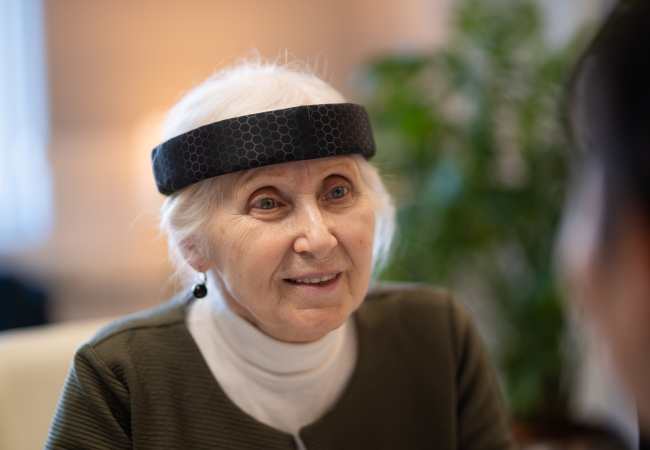
Alzheimer’s Disease
Finding Alzheimer’s Disease early
We know that early treatment of Alzheimer’s is one of the best ways to slow this progressive disease, giving people more quality years with their families. However, patients may not seek an early diagnosis, especially because symptoms may not appear right away.
Cogwear is testing our technology for early Alzheimer’s screening with support from the Penn AITech backed by the National Institute on Aging.
Patients and their healthcare providers can potentially use Cogwear’s clinical-grade insights to assess cognitive function easily and from anywhere whether it’s a doctor’s office, hospital, clinic, or at home. Our hope is that earlier screening improves functional lifespan. Patients will be empowered to make earlier lifestyle changes, family and loved ones can better prepare, and — in the future — researchers and healthcare providers will be able to identify which treatments are most effective.
A data-based approach to diagnosis and treatment
Our technology can analyze what’s happening in the frontal and temporal lobes, the parts of the brain related to executive function and memory retention. We are currently testing algorithms that can detect and trend changes in these areas, which are some of the first physiological signs of Alzheimer’s Disease and other dementias.
As we develop our technology, doctors and patients will have an easy and accurate way to screen and monitor Alzheimer’s Disease. With earlier detection, patients can begin treatment sooner, live independently for longer, and spend more quality years with their loved ones.
Easier ongoing care
Not only does Cogwear help with the initial screening process, healthcare providers can potentially check progress remotely so patients can be assessed between trips to the doctor. Frequent trending has the potential to alert the patient and caregivers to sudden disease progress.
Cogwear goes beyond typical feedback
Cogwear also outperforms wearable technologies that measure physical feedback other than brainwaves. For example, we offer a 32% more accurate measurement of stress and 58% more accurate measurement of anxiety than wearables that rely on physical measures like heart rate variability.
Easier ongoing care
Not only does Cogwear help with the initial screening process, you can let your care provider check progress remotely and potentially take fewer trips to the doctor. With Cogwear, you’ll get an early indication of what’s working. This way your care provider can offer precision medicine that helps you get better and may prevent potential relapse.






